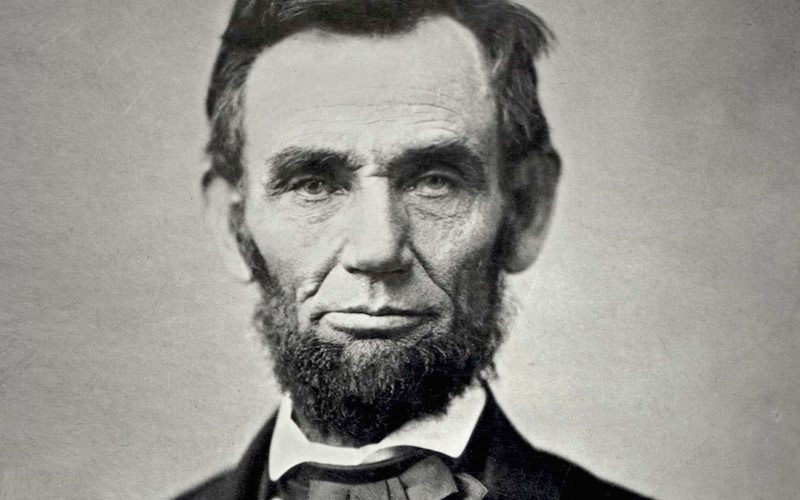Gettysburg Address
by Abraham Lincoln, 1863
Episode #3 of the course “The most influential speeches in world’s history”
In July of 1863, the Battle of Gettysburg raged on the fields of Pennsylvania, claiming the lives of nearly 50,000 American men. Four months later, on November 19, 1863, President Abraham Lincoln traveled to the battle site to speak at the dedication of the Soldiers’ National Cemetery. Although he was not the main speaker of the day, the two-minute long 272-word address that Lincoln gave that day impressed many; he spoke about his vision for the future of America. Although there is a legend that Lincoln penned the speech on the train on the way to deliver it, that is unlikely. Five copies in his handwriting survive, and these were obviously scripted on the steady surface of his desk rather than on a bumpy train.
The beginning line of the Gettysburg Address is one of the most quoted, referenced, and parodied lines from any speech. Lincoln’s message is focused on unity and peace. He pays tribute to the men who died at Gettysburg, giving his gratitude for their sacrifice in the name of freedom. Reminding listeners that the place where those soldiers’ bodies lie will forever be a spot on the map where men died for “a new birth of freedom” for the United States of America, he expressed that he did not believe their ultimate sacrifice would be in vain. Lincoln encouraged other Americans to join him in their remembrance.
Legend says that after delivering the speech, there was little applause the audience’s reaction was scattered, and they were seemingly stunned into silence. Lincoln believed his speech was not going to have much of an impact, and public reactions were mixed. However, over time, those who were at Gettysburg that day spoke for the rest of their lives about the significance of Lincoln’s words.
“Fourscore and seven years ago our fathers brought forth on this continent a new nation, conceived in liberty and dedicated to the proposition that all men are created equal.
Now we are engaged in a great civil war, testing whether that nation or any nation so conceived and so dedicated can long endure. We are met on a great battlefield of that war. We have come to dedicate a portion of that field as a final resting-place for those who here gave their lives that that nation might live. It is altogether fitting and proper that we should do this.
But, in a larger sense, we cannot dedicate, we cannot consecrate, we cannot hallow this ground. The brave men, living and dead who struggled here have consecrated it far above our poor power to add or detract. The world will little note nor long remember what we say here, but it can never forget what they did here. It is for us the living rather to be dedicated here to the unfinished work which they who fought here have thus far so nobly advanced. It is rather for us to be here dedicated to the great task remaining before us – that from these honored dead we take increased devotion to that cause for which they gave the last full measure of devotion – that we here highly resolve that these dead shall not have died in vain, that this nation under God shall have a new birth of freedom, and that government of the people, by the people, for the people shall not perish from the earth.”
Share with friends

